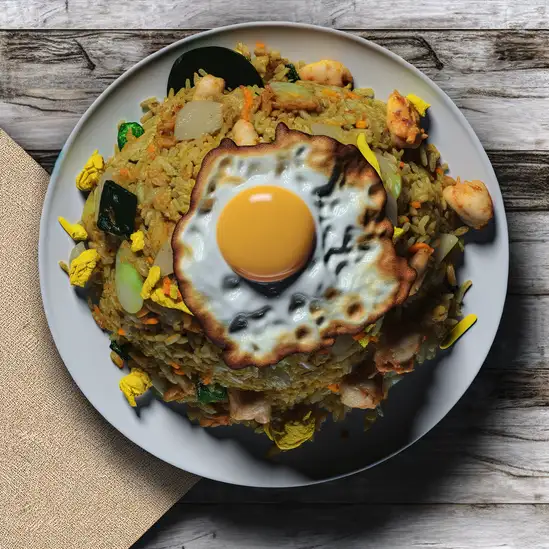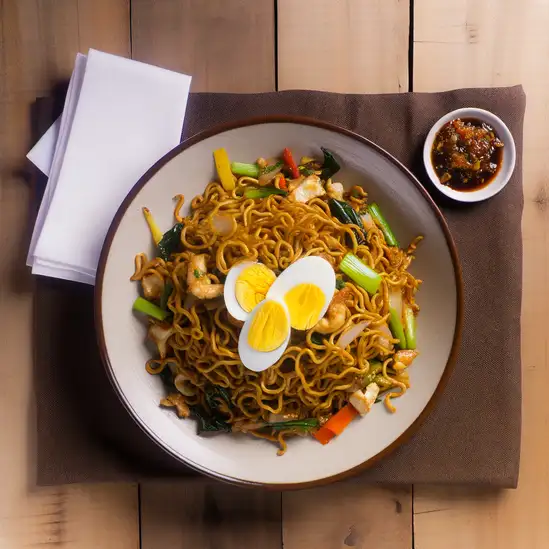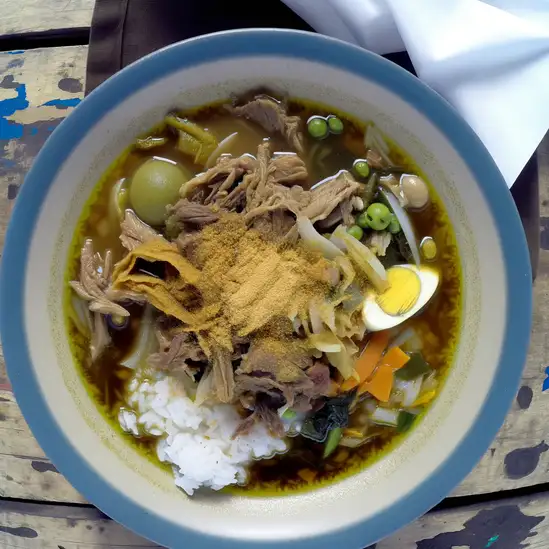


Imagine stepping onto Gili Air and instantly feeling the world slow down. This tiny island off the coast of Lombok pulses with a laid-back charm that’s impossible to resist. No cars or motorbikes here—just the gentle clatter of horse-drawn carts and the soft crunch of sand beneath your feet. The air carries a salty tang mixed with the sweet scent of frangipani flowers,and every evening,the sky bursts into a canvas of pinks and oranges as the sun dips below the horizon. Wandering along the shoreline,you’ll hear the rhythmic splash of waves mingling with laughter from beachside cafes where locals and travelers swap stories over fresh coconut water or spicy satay. The island’s vibe is a beautiful blend of simplicity and warmth,where everyone seems to know your name by the second day. Dive beneath the surface,and you’re greeted by vibrant coral reefs teeming with turtles and colorful fish—snorkeling here feels like swimming in a living aquarium. What makes Gili Air truly special is its balance between peaceful solitude and lively community spirit. By day,you can lose yourself in yoga classes or hammock naps; by night,the soft glow of lanterns and acoustic guitars create an intimate atmosphere that invites connection. It’s a place where time feels elastic,and every moment encourages you to breathe a little deeper and smile a little wider. Trust me,once you’ve felt Gili Air’s rhythm,you’ll carry a piece of it with you long after you leave.
The information on this page is currently being reviewed by Tripkliq and should be used as a guide only
Eng word: Hello
Eng pronunciation: HAH-loh
Local language: Halo
Eng word: Goodbye
Eng pronunciation: suh-LAH-maht TING-gahl
Local language: Selamat tinggal
Eng word: Thank you
Eng pronunciation: teh-REE-mah KAH-see
Local language: Terima kasih
Eng word: How much
Eng pronunciation: buh-RAH-pah
Local language: Berapa
Eng word: Toilet
Eng pronunciation: TOY-let
Local language: Toilet
Eng word: Help me
Eng pronunciation: TOH-long SAH-yah
Local language: Tolong saya
Eng word: Yes
Eng pronunciation: YAH
Local language: Ya
Eng word: No
Eng pronunciation: TEE-dahk
Local language: Tidak
Eng word: Excuse me
Eng pronunciation: puhr-MEE-see
Local language: Permisi
Gili Air was one of the first of the Gili Islands to be settled by the Sasak people from Lombok. The island's name,'Air,' means 'water' in Indonesian, reflecting the island's fresh water sources.
Historically, the primary occupation of Gili Air's inhabitants was fishing. The island's rich marine life provided a sustainable livelihood for the local community.
Gili Air has a rich cultural heritage influenced by the Sasak people. Traditional music, dance, and crafts are still practiced and celebrated by the island's residents.
Tourism began to develop in Gili Air in the late 20th century. The island's pristine beaches, clear waters, and vibrant coral reefs attracted visitors from around the world.
In recent years, Gili Air has become known for its marine conservation efforts. Local organizations and dive centers work together to protect the coral reefs and marine life.
Gili Air is part of the Coral Triangle, known for its incredible biodiversity. The waters around the island are home to a variety of marine species, including turtles, reef sharks, and colorful fish.
To preserve the island's tranquility and environment, Gili Air has banned motorized vehicles. Transportation is primarily by bicycle, horse-drawn carts (cidomo), and on foot.
The island has a long tradition of boat building. Local craftsmen use traditional techniques to construct wooden boats, which are essential for fishing and transportation.
Gili Air promotes community-based tourism, ensuring that the benefits of tourism are shared with the local community. Many businesses are locally owned and operated.
In Gili Air, the most common Power Adaptor is Type C, Type F.



A flavorful fried rice dish often served with vegetables, chicken, or seafood, and topped with a fried egg.

A Balinese-style satay made from minced meat mixed with grated coconut and spices, wrapped around bamboo sticks and grilled.

Grilled fish marinated in a blend of spices, often served with sambal (spicy sauce) and rice.

A traditional salad made with boiled vegetables, tofu, and hard-boiled eggs, served with a rich peanut sauce.

Indonesian fried noodles stir-fried with vegetables, eggs, and a choice of meat, often seasoned with sweet soy sauce.

A slow-cooked beef dish in a rich and spicy coconut milk sauce, originating from the Minangkabau ethnic group.

A traditional Indonesian soup made with meat, vegetables, and spices, often served with rice or noodles.

Fermented soy products, tempeh (fermented soybeans) and tahu (tofu), often served fried or in a savory sauce.
If you find yourself wandering through Kota Denpasar,you’ll immediately notice its lively heartbeat—a city that hums with everyday life yet carries a deep cultural rhythm beneath the surface. It’s not the polished tourist hub like southern Bali,but that’s exactly what makes it so captivating. The streets buzz with scooters weaving through markets where the scent of fresh spices mingles with the earthy aroma of tropical fruits. Vendors call out in warm,melodic tones,inviting you to taste something new or simply share a smile.
Denpasar feels like the authentic soul of Bali,where tradition and modern life dance side by side. You’ll see women in vibrant kebayas carrying offerings to temples,while nearby,young artists sketch murals that splash color onto old walls. The city’s pulse is both chaotic and comforting,with the clatter of street food stalls serving up fragrant nasi campur and the gentle chime of temple bells weaving through the air.
What’s truly special is how Denpasar invites you to slow down and soak in its layers—whether it’s the warmth of a local’s greeting,the taste of freshly brewed Balinese coffee,or the sight of intricate carvings on ancient temples tucked between bustling streets. It’s a place where you don’t just visit; you become part of the daily story,feeling the city’s spirit in every step you take.
Labuan Bajo feels like stepping into a vibrant postcard where the sea meets rugged hills,and every sunset paints the sky in fiery oranges and pinks. When you arrive,there’s this laid-back energy that wraps around you—locals chatting over fresh fish markets,the salty breeze mingling with the scent of tropical flowers,and boats bobbing gently in the harbor. It’s a place where time slows down just enough for you to soak in the simple beauty of island life.
Walking through the town,you’ll hear the lively chatter of fishermen,the clinking of glasses at cozy beachfront cafes,and the distant call of exotic birds. The streets are dotted with colorful warungs serving up spicy sambal and freshly grilled seafood that tastes like it was caught just moments ago. There’s a warmth in the smiles of the people here,a genuine friendliness that makes you feel instantly welcome.
What really sets Labuan Bajo apart is its gateway to the Komodo National Park. Beyond the town’s charm,you can dive into crystal-clear waters teeming with vibrant coral reefs or trek through dry savannahs to spot the legendary Komodo dragons. It’s a place where adventure and tranquility coexist,where you can lose yourself in nature’s wonders and then return to a hammock overlooking the calm sea,feeling utterly content. Trust me,Labuan Bajo isn’t just a destination—it’s an experience that stays with you long after you leave.
If you find yourself wandering through Kota Administrasi Jakarta Pusat,you’ll immediately notice the pulse of a city that’s both historic and buzzing with modern energy. It’s a place where colonial-era buildings stand shoulder to shoulder with sleek skyscrapers,creating a fascinating blend of old and new. Walking down the streets,you can almost hear the echoes of history mingling with the chatter of office workers and street vendors. The air carries a mix of aromas—from the rich,spicy scent of street food stalls grilling satay to the faint,comforting smell of freshly brewed kopi from tiny warungs tucked in corners.
What really makes Jakarta Pusat special is its vibrant character. It’s the heart of the city’s administrative and cultural life,so you’ll find a lively mix of people—government officials,artists,students,and families—all weaving their stories into the urban fabric. The bustling markets,like Pasar Baru,invite you to haggle over colorful textiles and local snacks,while nearby museums and galleries offer a quiet retreat into Indonesia’s rich heritage.
There’s a rhythm here that’s both fast-paced and inviting. Whether you’re sipping a sweet es cendol under the shade of a tree in Merdeka Square or catching the golden light reflecting off the National Monument at dusk,Jakarta Pusat feels alive in a way that’s deeply human and endlessly fascinating. It’s a city that invites you to slow down,look around,and soak in the layers of life unfolding all at once.
Surabaya pulses with an energy that’s both vibrant and welcoming,a city where history and modern life dance side by side. As you wander through its bustling streets,you’ll catch the scent of sizzling satay mingling with the salty breeze from the nearby harbor. The city hums with the chatter of locals bargaining in lively markets,the clatter of motorbikes weaving through traffic,and the distant call of street vendors selling fresh tropical fruits. It’s a place where every corner tells a story—from colonial-era buildings standing proudly alongside sleek skyscrapers to colorful murals that splash life onto old walls.
What really makes Surabaya special is its character:tough yet warm,a city that’s seen its share of history but never lost its heart. The people here are fiercely proud and incredibly friendly,always ready to share a smile or a recommendation for the best local warung. Dive into the food scene and you’ll find yourself savoring rich,spicy flavors—like the famous rawon,a dark beef soup that’s both comforting and bold,or the sweet,sticky lontong balap that fills the air with fragrant spices.
Evenings in Surabaya have their own magic. The city lights flicker on,and the streets fill with the sounds of gamelan music drifting from cultural performances or the laughter spilling out of cozy cafes. Whether you’re exploring the historic old town or simply sipping kopi on a street corner,Surabaya invites you to slow down,soak in its layers,and feel the heartbeat of a city that’s alive in every sense.
If you ever find yourself craving a place where the ocean breeze carries the scent of sizzling street food and the hum of lively markets fills the air,Makassar should be at the top of your list. This city pulses with a laid-back energy that feels both vibrant and welcoming,like a friend inviting you to slow down and savor the moment. Walking along the waterfront,you’ll catch glimpses of traditional wooden phinisi boats bobbing gently,their sails catching the golden light of sunset,while fishermen call out to one another in a melodic rhythm that feels timeless.
Makassar’s streets are a feast for the senses. The aroma of grilled seafood—freshly caught and seasoned with local spices—wafts from warungs lining the alleys,tempting you to try coto Makassar,a rich,aromatic beef soup that locals swear by. The city’s mix of Bugis and Makassarese cultures shines through in its colorful markets,where vibrant textiles,handcrafted jewelry,and lively banter create a tapestry of daily life that’s both authentic and inviting.
What really makes Makassar stand out is its blend of old and new. You can explore centuries-old forts and mosques,then hop over to a bustling café where young creatives gather,blending tradition with modern flair. It’s a place where every corner tells a story,and every meal feels like a celebration. Trust me,Makassar isn’t just a stopover—it’s a place that stays with you long after you’ve left.
If you ever find yourself wandering through Yogyakarta,you’ll immediately notice a rhythm that feels both lively and laid-back,like the city is humming a gentle,inviting tune. It’s a place where ancient traditions and youthful energy collide in the most beautiful way. As you stroll down Malioboro Street,the air is thick with the scent of sizzling satay and sweet jasmine from roadside stalls,while the chatter of locals bargaining and the distant beat of gamelan music create a vibrant soundtrack. The city’s heart beats in its art and culture—every corner seems to hold a story,from the intricate batik workshops to the majestic temples of Borobudur and Prambanan just a short ride away.
Yogyakarta’s charm lies in its warmth and authenticity. The people here are incredibly welcoming,often eager to share their crafts,stories,or a cup of strong Javanese coffee. You can feel the city’s deep respect for its heritage,yet it’s also a hub for creative souls,with street art splashed across walls and indie cafes buzzing with young artists and thinkers. The sunsets here are something else—casting a golden glow over the terracotta rooftops and ancient palaces,inviting you to pause and soak it all in.
Whether you’re wandering through the Sultan’s Palace,tasting gudeg (a sweet jackfruit stew) at a local warung,or simply watching the world go by from a cozy café,Yogyakarta wraps you in a sense of belonging. It’s a city that doesn’t just ask you to visit but to stay a little longer,to explore deeper,and to fall in love with its soul.
Some ATMs may be tampered with skimming devices to steal card information. Tourists are advised to use ATMs in secure locations.
Money changers may use rigged calculators, shortchange tourists, or provide counterfeit bills during currency exchanges.
Scammers may pose as representatives of hotels or villas and take deposits for accommodations that do not exist or are already fully booked.
Tourists are sold fake or overpriced fast boat tickets to nearby islands or Bali. Scammers often pose as official agents or set up unofficial ticket booths.
Tourists renting bicycles or snorkeling gear may be charged inflated prices, or operators may claim damage to the equipment to demand extra fees.
Some horse cart drivers (cidomo) or private boat operators may charge tourists significantly higher prices than the standard rates.
Unlicensed operators may offer cheap snorkeling or diving tours but fail to provide proper safety equipment or deliver the promised experience.
Indonesia has very strict laws regarding drugs, and this includes Gili Air. The possession, use, or trafficking of illegal drugs can result in severe penalties, including long prison sentences and even the death penalty. Tourists should be extremely cautious and avoid any involvement with illegal substances. Prescription medications should be carried with a doctor's note to avoid any potential issues with local authorities.
In Gili Air, as in the rest of Indonesia, smoking is generally allowed in public places, including restaurants and bars, unless otherwise specified by the establishment. However, there are designated non-smoking areas, and it is important to respect these zones. Smoking is prohibited in certain public spaces such as hospitals, schools, and public transportation. Tourists should also be mindful of local customs and avoid smoking in places where it might be considered disrespectful.
Vaping is less regulated than smoking in Indonesia, including Gili Air. However, it is advisable to follow the same guidelines as smoking. Vaping is generally allowed in public places unless there are specific signs prohibiting it. Tourists should be considerate and avoid vaping in crowded or enclosed spaces where it might disturb others.
What are other people saying about Gili Air?
Recent Social posts about Gili Air
There is nothing to show you for now.